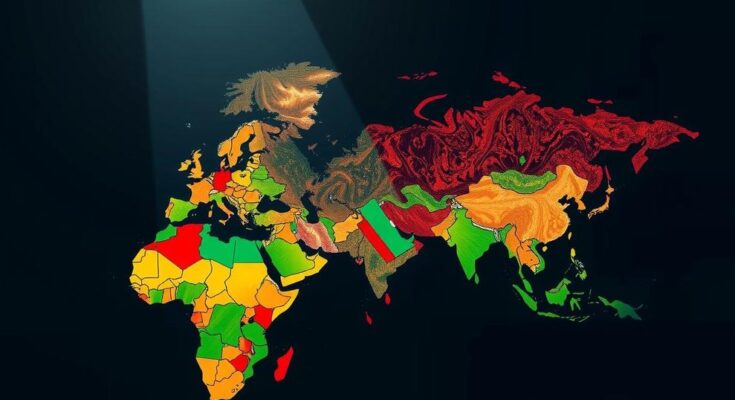A hearing at the International Court of Justice calls for accountability from a few major greenhouse gas emitting countries regarding their role in the climate crisis, particularly affecting vulnerable Pacific island nations like Vanuatu. Legal representatives highlighted the importance of reparations and adherence to international law, amidst growing concerns from youth about climate futures being hijacked by fossil fuel interests.
During a significant hearing at the International Court of Justice (ICJ) in The Hague, representatives from vulnerable nations have asserted that a few countries should be held legally accountable for the adverse effects of climate change. Ralph Regenvanu, the special envoy for climate change and environment from Vanuatu, emphasized that the responsibility for this crisis lies with a small number of states that contribute the majority of greenhouse gas emissions yet are minimally affected by its consequences.
The court session, a culmination of extensive advocacy by Pacific island groups, commenced with Regenvanu stating that nations like Vanuatu are confronting rising sea levels and an increase in the frequency of catastrophic events. He highlighted, “We find ourselves on the frontlines of a crisis we did not create.” The hearing is supported by a United Nations resolution urging the ICJ to assess the obligations of states regarding climate action and the potential legal ramifications for non-compliance.
Over the course of the hearing, the court will receive insights from 98 nations, including both major historical polluters like the United Kingdom and Russia, as well as countries with minimal contributions to greenhouse emissions, such as Bangladesh and the Pacific island states. Notably, both the United States and China will additionally make statements despite their reluctance to acknowledge the ICJ’s authority.
Regenvanu criticized the ongoing emission of greenhouse gases, which have surged by over 50% since 1990, despite warnings from the scientific community. Additionally, testimonies regarding personal experiences and threats posed by climate change will be submitted to the court. It was pointed out by Ilan Kiloe, legal counsel for the Melanesian Spearhead Group, that the survival of many peoples is at stake, linking the climate emergency with historical injustices associated with colonialism.
Margaretha Wewerinke-Singh, the lead counsel for Vanuatu and the Melanesian Spearhead Group, contended that several states have committed violations of international law, including the endorsement of fossil fuel extraction and insufficient regulation of emissions. She asserted that these responsible states must provide adequate reparations commensurate with their historical contributions to climate harm. Cynthia Houniuhi, representing Pacific Island Students Fighting Climate Change, expressed the disillusionment of the youth regarding the climate agreements, which she claims have fallen prey to fossil fuel interests.
In addition to state representatives, selected organizations such as OPEC and the European Union may also provide statements during this advisory opinion process. Consequently, the ICJ is set to deliver an opinion that, while not binding, may influence future climate legislation and litigation, aligning with previous opinions from other international courts that have affirmed the necessity for states to manage greenhouse gas emissions.
The ongoing climate crisis is a consequence of historical emissions predominantly attributed to a few developed nations. Pacific island nations, which have contributed insignificantly to global emissions, are disproportionately affected by climate change, experiencing dire challenges such as rising sea levels and severe weather incidents. The recently initiated hearing at the International Court of Justice seeks to clarify the legal responsibilities of states in combating climate change, focusing on the obligations that larger emitting states have in mitigating environmental impacts on vulnerable nations. This initiative is part of a broader movement advocating for climate justice and accountability among the world’s leading polluters.
The ongoing hearings at the International Court of Justice are pivotal in addressing the legal accountability of nations contributing to climate change. Representatives from vulnerable nations assert that a handful of historically significant emitters must bear responsibility for the crisis they have perpetuated. The expected findings may illuminate the legal obligations of states to combat climate change and potentially catalyze more robust international climate action.
Original Source: www.theguardian.com




